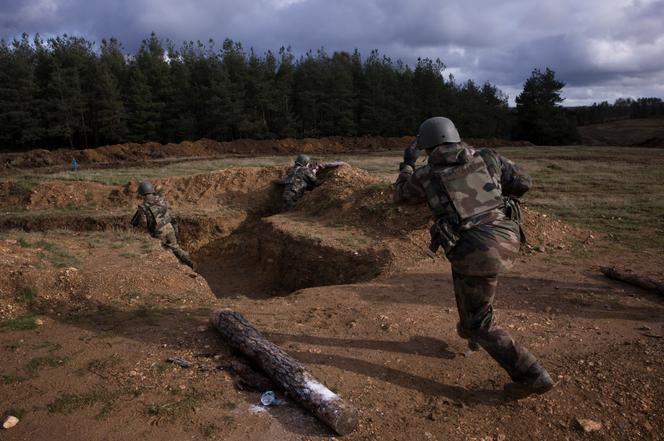


It had been a taboo subject until now. At the end of an international conference in support of Ukraine at the Elysée Palace on Monday, February 26, President Emmanuel Macron sketched out the prospect of Western troops intervening on the ground in Ukraine. The question, said the French leader, "was one of the options" discussed by the European heads of state and government present in Paris, some 20 of them. The meeting had been organized in a hurry to strengthen aid for Ukraine, particularly military support, as Russian assaults keep the country under pressure after two years of war.
"There is no consensus today to send troops on the ground in an official, accepted and endorsed manner," Macron said. "But no option should be discarded. We will spare no effort to ensure that Russia does not emerge victorious in this conflict." On the subject of the possible participation of French troops in potential ground operations, Macron assumed a "strategic ambiguity": "I absolutely did not say that France was not in favor of it," he observed.
These statements stand in stark contrast to the cautious stance adopted over the past two years by Ukraine's Western allies – notably France – who are keen to avoid escalation with Russia. The question of the intervention of allied troops on the ground is highly sensitive, particularly within NATO, whose members, led by the United States, are seeking to avoid any form of "cobelligerence" with nuclear-armed Russia.
On Monday evening, German Chancellor Olaf Scholz is said to have formally ruled out any ground troop intervention in Ukraine. Outgoing Dutch Prime Minister Mark Rutte, who has been tipped to become NATO's next secretary general, also insisted that the issue was not on the agenda. Before the meeting, Slovakia's pro-Russian Prime Minister Robert Fico had described the West's strategy in Ukraine as a "total failure," and said he feared "the worst decision" at the end of the discussions, adding that he would go to Paris to "prevent the direct participation of Slovak soldiers in the war in Ukraine."
Ukraine has been racking up setbacks in the east of its territory in recent days, notably with the loss of the town of Avdiivka on February 17. At a time when US military aid is being blocked by members of Congress close to Donald Trump, certain states on the front line against Russia, including the Baltic states and Poland, are quietly pleading to examine all possible options. "We have to prepare for all of them. It's a very important decision, which must be collective. We need time to organize this kind of ground intervention gradually. For example, it could start with the repair of military equipment on Ukrainian territory, with Western experts," explained a European diplomatic source.
You have 50.19% of this article left to read. The rest is for subscribers only.
